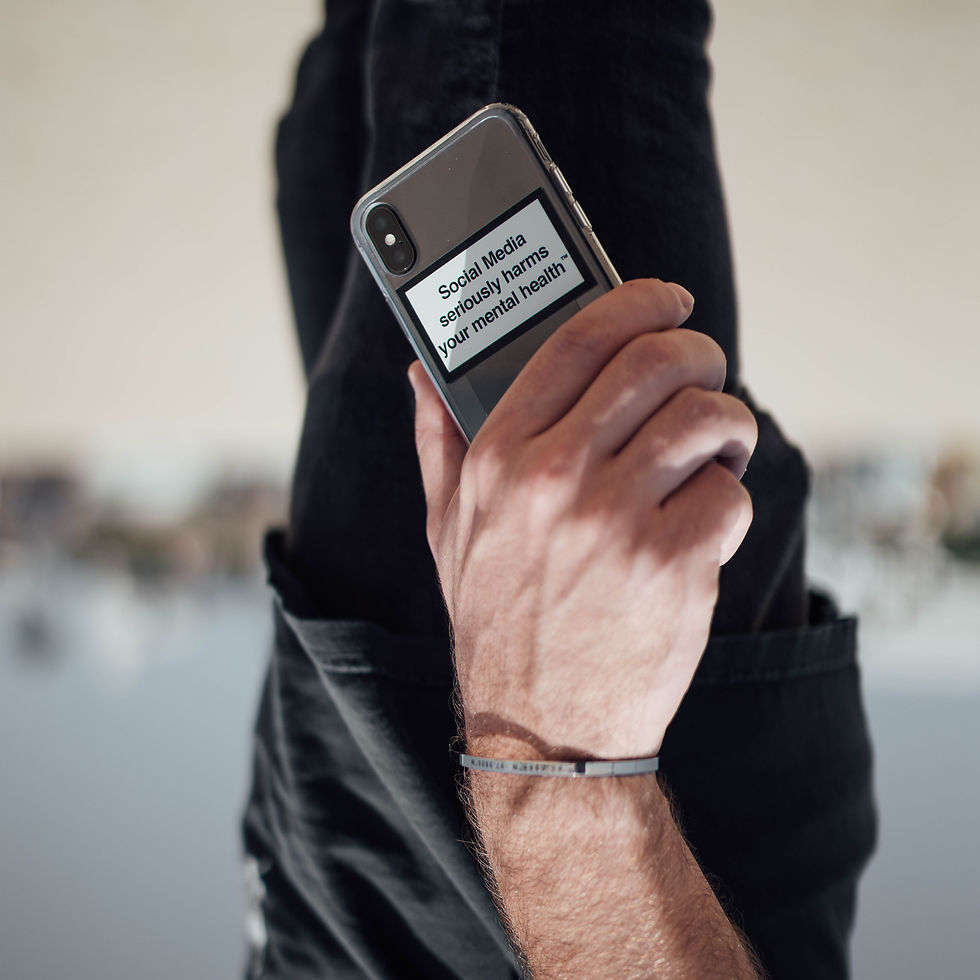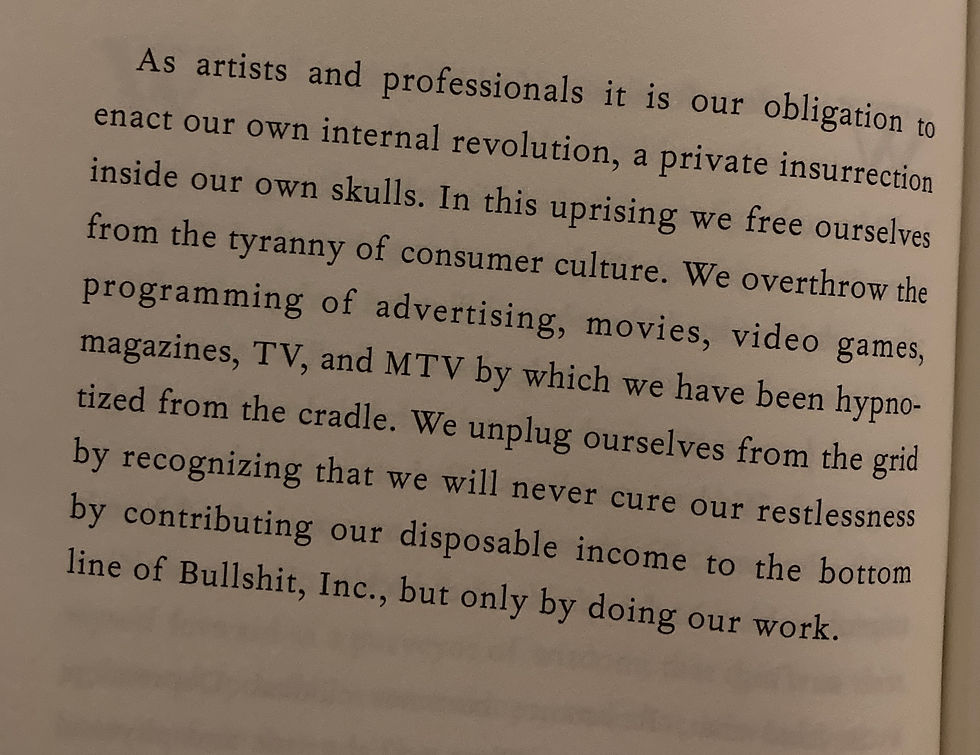
Or at least allow me to reset it, but I would rather it just go.
Disclaimer: This is my personal opinion on the algorithms that power features like Instagram’s explore page. I really don’t care to dwell on it any further than this post as it is unlikely to change. All I care to do is find ways to safely navigate the unavoidable digital tides while protecting my head. (You can argue they’re avoidable but realistically what that would mean for a not yet established individual with a limited professional network, is putting yourself at a disadvantage in most fields. What a time to be a slave to capitalism.)
The algorithm is wack. For all its purposes of assuming relevancy (which now further serves its own purpose of clocking up the time you spend in apps), it is wack. If we all live in virtual echo chambers of our past selves’ thoughts, it’s no wonder humans are getting dumber. Yes, I was depressed a year ago, but please stop feeding me these same mentality posts. I am trying to grow from there. I want freedom from that echo chamber. It makes me feel crappy.
This animosity towards the Instagram explore page for triggering old habits led to a spur of the moment app deletion (again) and a maddened google search to uncover when exactly algorithms first came into effect. See, I do have fond memories of loving social media, specifically Twitter, long before the very same apps bombarded me with extra content I didn’t ask to see.
The only hit that answered my question was a blog post on “dcustom”– a site I had never heard of but nonetheless, clicked into as every other search result promised to “decode the algorithm”, tell me “everything I need to know about social media algorithms”, or mind numbingly all too familiar versions of the same, all geared towards content marketers. I know how they work, Google. I watched The Social Dilemma and I study social media marketing (I’m hoping to make it more ethical). I am simply wondering if the introduction and development of algorithms happens to coincide with my apathy towards social media. The first filaments of this, albeit almost invisible at the time and only distinguishable in hindsight, began in 2014/15. The full extent became glaringly obvious this year.
Within the first paragraphs of dcustom’s Algorithm Evolution: Adapting to Social Media Changes, a very specific phrase made me chuckle: “Advances in technology are at odds with human adaptability to change”. This is a theory that I have a heightened interest in, and from my current perspective, whole heartedly agree with, especially in relation to the digital space. As a science person who enjoyed Biology at school, graduated with a Biomedical Science degree, and now nurtures a keen interest in holistic wellbeing; I very much understand how slow human evolution is in the physical sense.
I am also acutely aware of social media’s incredibly nuanced role in today’s social landscape. It is both the hero and the villain. I do substantially reference The Social Dilemma in my recent discussions of this topic, and will probably do so too in this piece as I think it is a near perfect summary (I’m wary of calling anything completely perfect) of the complexities of social media, while heeding warnings to the dangers. For me, the bottom line is: all the things that come with social media– including but not limited to the never-ending information load, the insidious FOMO, the pressures and relentless anxiety– are most definitely at odds with what our brain structures can physically cope with and adapt to in our lifetimes. Our brains may be malleable, but I don’t think we can rewire them quickly enough to protect ourselves from what I am very inclined to liken to subliminal psychological warfare. I myself, fall victim to the mental overwhelm time and time again.
So let us journey back and uncover the history of algorithms. For my own evaluative purposes, I’ll align developments with my own history of personal platform use.
To begin, here's an infographic courtesy of dcustom.

Early social media platforms were innocent in the sense that they were merely the digital extension of our everyday lives. You saw what your friends were doing, and that was very much it.
Pioneered by Facebook, the tech giant was the first to roll out algorithmic feeds. Algorithmic feeds assume relevancy rather than simply showing you the most recent posts. This development came in 2011. My departure to Twitter would occur within the next 12 months, in which time Facebook would have also started to push sponsored posts into newsfeeds. So far so good as subconsciously rejecting algorithms goes.
I spent a considerable chunk of my social media life on Twitter between 2012 and 2017. Call it my online home hub for this time period if you will. Twitter launched an optional algorithmic timeline in 2016. Key word: optional. And guess what your girl did? Yes, exactly what you’re thinking. She opted out. Sue me for preferring a chronological timeline that doesn’t skip posts.
On the Instagram side of things, I had been happily sharing my photo moments since late 2012. Instagram too launched an algorithmic timeline in 2016. In this year, I was far too busy living my best year abroad life to even spend time browsing my timelines. Sometimes you produce for others to consume.
Since 2016, my own relationship with social media is best described as complicated. For all the new friends and opportunities it brought over the first half of the 2010s, the second half seems to have been a constant struggle of curating my experience to best serve my interests while retaining my sanity. New friends are a rarity, professional connections a tad more customary, mute and remove actions a given.
Having said this, I must applaud Twitter. Despite the inevitable changes, it is probably the best at allowing me the autonomy to choose how I experience and interact with the app and its users. The mute feature is by far, the thing that allows me to retain my sanity and continue to somewhat enjoy the app. Twitter users will understand when I say the influx of locals brought a different dynamic to the space. It’s a free country so by all means, exercise your right to be on Twitter, but I am infinitely thankful to the mute button. I am unforgiving with it and use it brutally. I know for a fact there are accounts in my mute list that I have only ever seen one tweet from, and that one tweet was sufficient to never want to risk seeing a second. I even have friends muted, purely because I do love them in real life but their online activity jars me. So, I keep them muted and every now and again will click into their profiles to see what they’ve been up to. Sounding like pre 2012 Facebook? Yep, exactly that for me.
We then have the trending topics on Twitter, which I do click into. Here, I can explore worldwide trends, country trends, local trends. There is some algorithmic activity here that shows you trends based on your interests too, but overall, I’d argue that the bird’s eye view (no pun intended) of the biggest conversations taking place in the world at any given time, is pretty objective. I also appreciate that these do not filter into my timeline, unlike in Instagram.
When I choose to, I use the search bar to find focused tweets and conversations. Twitter is the best of all worlds for me. I have my zen bubble, my friends are on it, I’m able to stop anything that threatens the peace, but as and when needed or wanted, I can peek outside for a healthy dose of awareness.
Instagram on the other hand, I have come to hate with a passion. It is a minefield for my anxiety, forever ticking down to the next implosion. I’ve always struggled to answer this one particular question employers love to ask: “What should we remove from social media?”. Something tells me users and marketing isn’t an answer they’d appreciate. However, I think I have finally found my answer. This is it, the explore page.

If I want to explore, then allow me to explore every option. This is possible with hashtags and location searches, but a stupid curated feed offers only the illusion of exploring. You’ve already predetermined what I’m going to see. How is anyone meant to actually grow? What’s worse, is that my brain too is fallible. No matter how much I know what’s happening, it falls victim to it. I’m not alone in this, The Social Dilemma will show you the tech professionals who developed these models citing the same. Many of them choose to forgo social media altogether. My explore page is currently quote upon quote of healing from trauma and “why they didn’t deserve you”. How ironic that this ‘self-help’ does the exact opposite. Instagram, I am exhausted. Get rid of it. I physically cannot go through every post selecting this doesn’t interest me.
But I also can’t think of anything I’d want to replace it with. To be honest, I’d rather my attention not be stolen and sold.
Would a move back to organic content be worth it? I’d prefer it, but then again I’ve never been one of these businesses with profit margins staring me down, so what do I know? Plus, the masses love to be entertained, even if it’s pseudo-entertainment. Like I said, I’m simply trying to protect my head. This isn’t a revolution, it’s only my thought piece.
I’ll leave you with an excerpt from Steven Pressfields “The War of Art” (first published in 2002), a book that I have been reading and in three days has kickstarted my early morning writing sessions, which have now led to the completion of this piece.

Esoteric? Potentially. Do I feel it right now? Yes. Will I feel it in a year or two? I don't know. But right now is all I've got. Please allow us to unchain ourselves from this social media hell.
If you read this far, thank you, and happy holidays to you.
Comentários